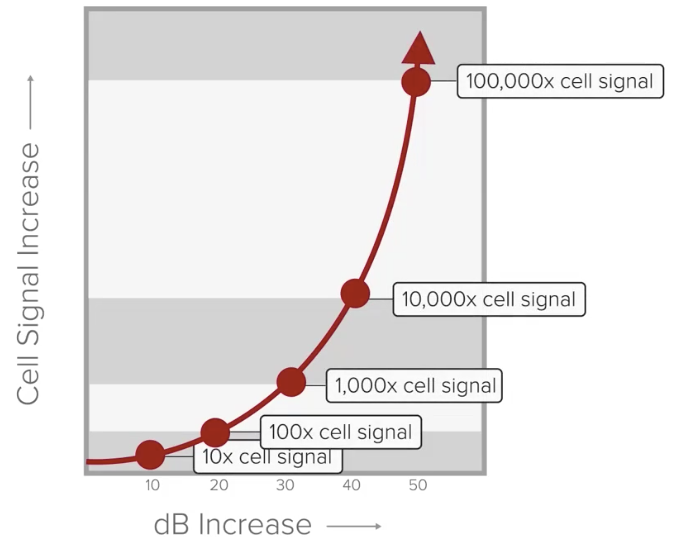What Is DB Gain or Decibel Gain In Cell Phone Signal Boosters?
Decibel or its short form, "DB" is a method of measurement with which we can measure the radio frequency signal of your cell phone or cellular connected tablet. Decibel Gain, or DB Gain is a measure of increase in that RF signal to the cellular device.
What does negative number cell signal mean?
A negative number as in cellular signal signifies the strength of the signal in decibels. To see the current state of the Dbs (or decibels) in a wireless phone, go to the settings and then look for the signal strength. Great optimum reception such as a mobile device that is right beside a cell tower will have -50 Dbs while a "dead zone" will be around -110 db. In relation to signal boosters, a simple explanation of db gain is that a gain value represents the relative level of signal enhancement that is capable of being provided by a booster and/or antenna.
A booster with a higher gain value will provide a stronger signal and/or coverage area than a booster with a lower gain value. Measuring Gain using signal bars is far from accurate. In other words, if Gain is at 60 db maximum on a cellphone, then that phone has the potential to work at the peak level even if it is currently registering as being in a dead zone according to zero signal bars it shows. DBs are the only real way in which a customer can effectively gauge the signal strength of his or her phone.
While you can get a very basic reading from bars, in order to see the specific and most accurate increase, look at the dbs. In technical terms, Antenna Gain is the ratio of an antenna’s or booster’s output power relative to the input power.
How do you measure Gain decibels is a good blog post you can read to learn how to measure in DBs. Signal Meter is a nice tool for installers to quickly find a spot to post an exterior antenna for best reception (highest Decibel reading).
Ratio of dB Gain Increase Versus Cellular Signal Strength Increase:


